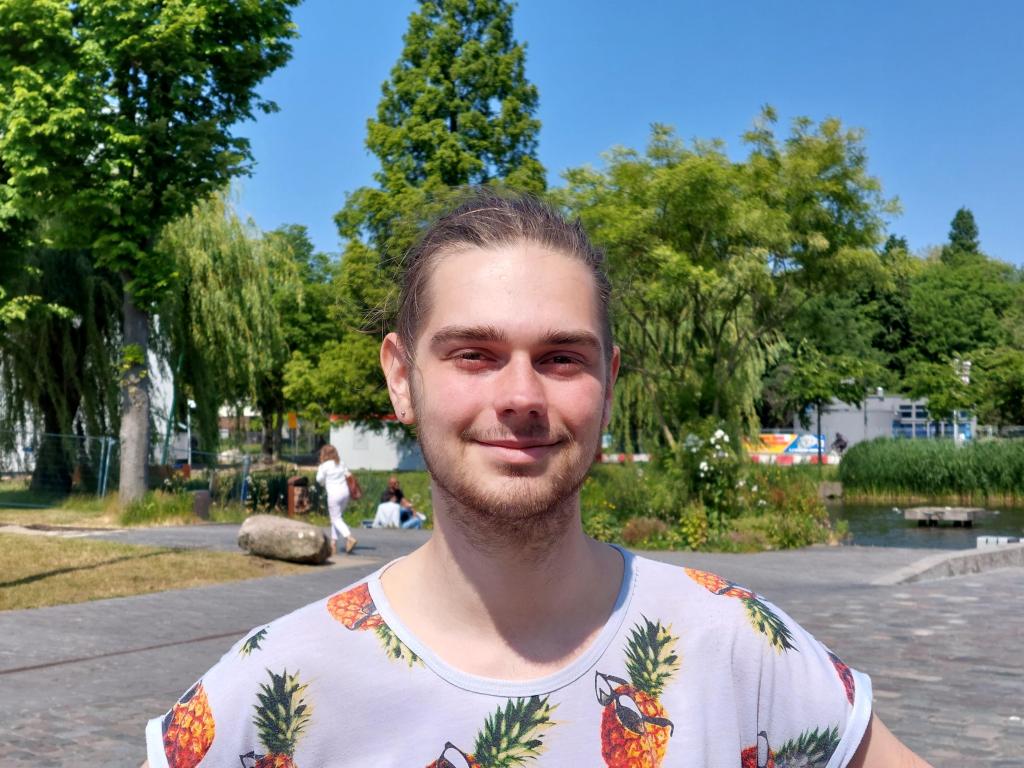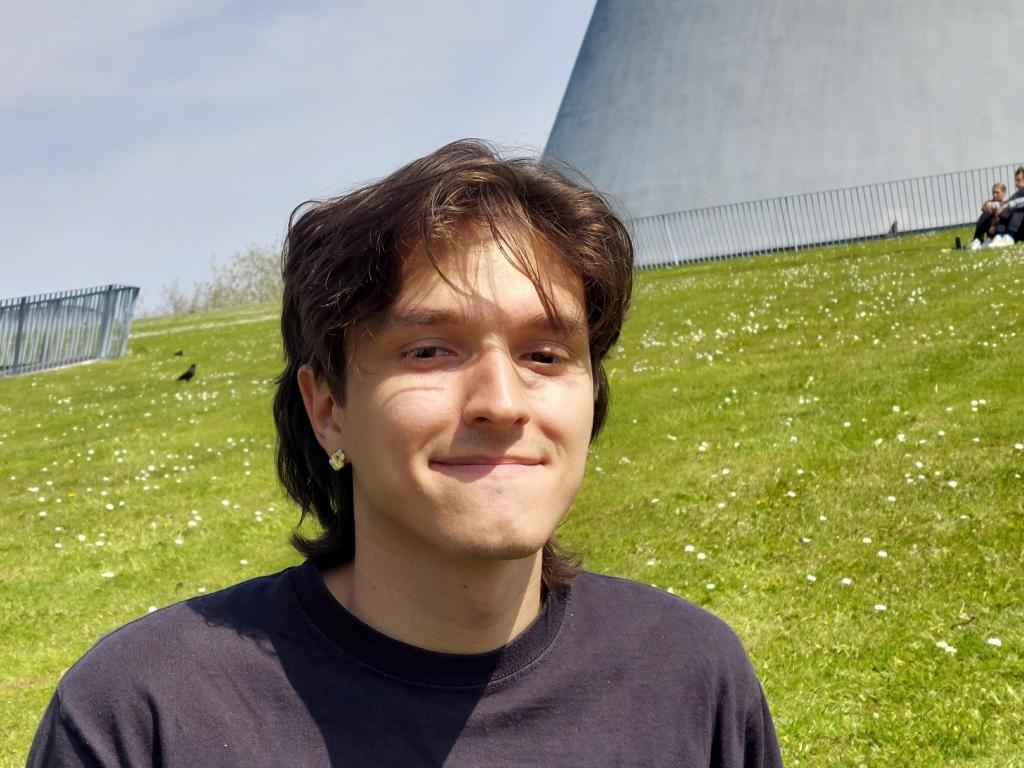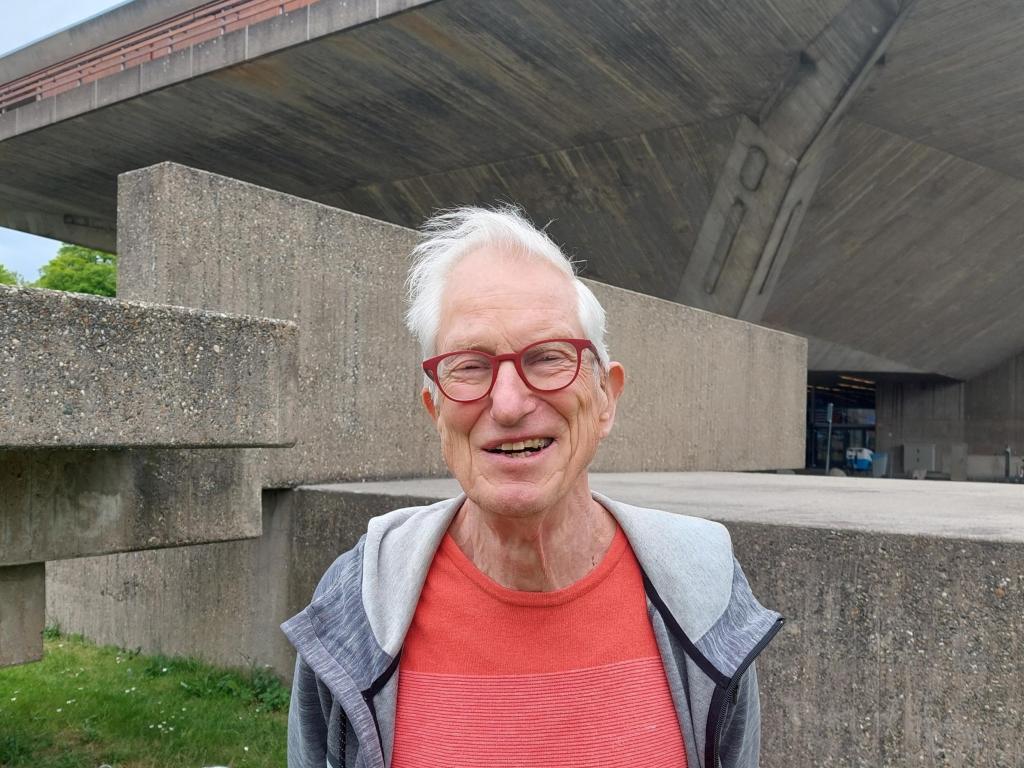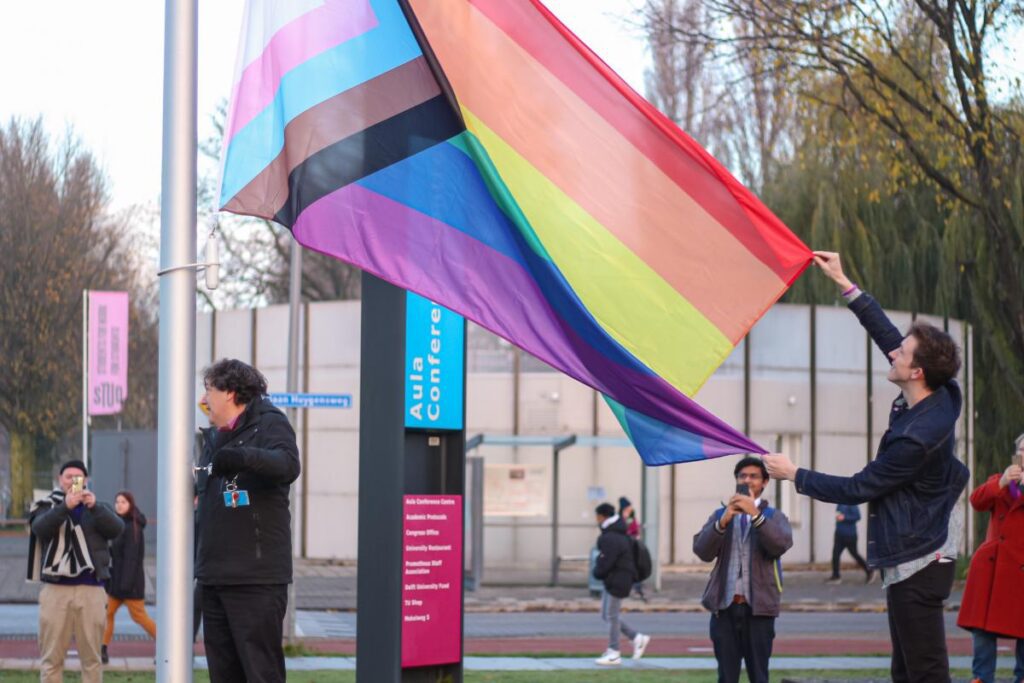DWH/Outsite members were shocked when the rainbow flag was burnt last month. Still, Delft is more progressive than other cities, says one them to Delta.
The progressflag is raised on campus. (Photo: Justyna Botor)
The rainbow flag that was set on fire at the Delft Homosexuality Working Group (DWH) and LGBT+ youth association Outsite on 7 May received a lot of media attention. However, it was not the first time that something was done to the flag, the DWH Board said the next day. The flag has disappeared fairly often, the flag pole has occasionally been broken off, and the window was smashed. On top of that, people have sometimes been subjected to comments, have been followed and verbally abused. DWH does not keep a record of the incidents as many members do not report them. Delta wondered: what impact do incidents like this have on the lives of queer people in Delft? Three of them explain.

Ward Peeters (22), Nanobiology student and former Outsite Board Member.
“I had not experienced before that the flag was put on fire, but I also thought similar things do happen. Many of the members around me said that they now feel very unsafe here. That affects me as we try to create a safe place here at this association.
Because of all the incidents in the news recently, I pay more attention to how people look at me, and definitely so if am outside holding hands with my boyfriend. It makes me very angry and irritated, but it is hard to do something about it alone. The only thing I feel I can do is call on people to vote in the elections and I share posts on Instagram showing what I’m going through.
After the flag was set alight, there was a wave of people whow wanted to be actively involved, but that has ebbed away a bit. We still spread positivity on Instagram. There are even negative responses to Delta articles about being queer, such as that these kinds of subjects should not appear in university newspapers. This affects the image I have of the student community here in Delft. We respond supportively to these posts.
And yet I think Delft is a lot more progressive than other cities. While I do experience comments on the street in Delft, this happens more often in other cities. People who identify as transgender receive more comments.”

Alexandru Postu (21), Computer Science Engineering student. Alexandru comes from Romania and feels most comfortable in queer spaces. He became a member of Outsite after the pandemic.
“After the flag was set on fire I was in doubt whether to go back to the bar (of Outsite, Eds.)) for safety reasons. When it became clear that the incident was a prank by drunkards and would probably not escalate any further, the incident felt, at most, unsettling. It is disquieting that the current social climate permits people to develop in a way that they do this. There were even worse incidents in Eindhoven and Groningen. I am aware that I am not as safe as I think.
In Romania you need to keep quiet about your identity. As far as I know, I was the only person to openly identify as queer at my school. There is more bullying there, but I think that as I did well at school, I was bullied less.
Up to now, I can be more open about my identity in Delft. It is fine here to show support to the queer community. TU Delft tries to speak out against homophobia and student associations are prepared to raise the flag. I appreciate their support. But I still have to explain why some expressions are hurtful. Some people think it breaches their freedom of speech to consider other people’s feelings. My experience has made me more determined to set a example. Being homosexual is just one facet of who I am and that it is not bad.”

Eric de Keizer (75), former Laboratory Manager at the Faculty of Aerospace Engineering and a member of DWH since 1972, where he has organised a film evening almost every Wednesday since 2000.
“To be honest, I think it costs EUR 10 to hang a new flag and we have to do this about five times a year. I also sometimes see students stealing the flag and walking away, which takes a great effort. It is much more serious when the place has been broken into and the front door damaged. I have experienced this a couple of times. The police carry out investigations, but you rarely hear anything from them.
The symbolic meaning of the flag seems to be the important aspect. You see the impact in the association and through it being immediately picked up by the media. A flag is symbolic for people. These types of incidents may have hardened me, as I have also gone through a lot.
It is easier now to come out. I have worked for TU Delft for more than 40 years, and at first anything that was different was ‘not done’. There were a lot of Christian professors at the time and the atmosphere was pretty cold. Luckily, our lab was more open. I never experienced any problems there. Things are so much better now. Julien van Campen came to work at our Faculty shortly after I retired. He is now the Chair of TrueU, the LGBTIQ+ network for TU Delft staff members.”
By Thirza Bolhuis | stagiair



Comments are closed.